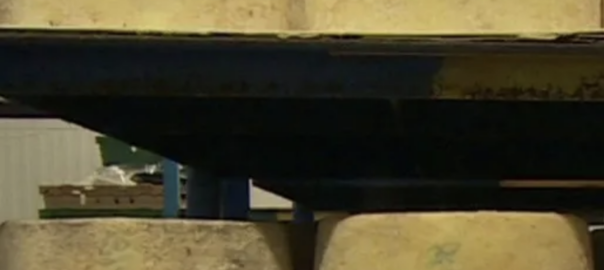30 confirmed cases of E.coli may be linked to contaminated cheese that was recalled on Christmas Day. Urgent recall of Mrs Kirkham’s Lancashire cheese undertaken. If you have this in your fridge read the guidance below.
An urgent recall of four types of Mrs Kirkham’s Lancashire cheese, which is produced in Preston, began on Monday.
The UK Health Security Agency said at least 30 reported cases were of the “specific outbreak strain” thought to have been in the cheese.
Anyone who bought the cheese was told to follow advice and recall notices.
The Food Standards Agency (FSA) and UKHSA have warned the public not to eat four cheeses:
- Mrs Kirkham’s Mild & Creamy Lancashire
- Mrs Kirkham’s Tasty Lancashire
- Mrs Kirkham’s Mature Lancashire
- Mrs Kirkham’s Smoked Lancashire
They said the cheese was “recalled as a precaution” because it may have been “contaminated with a specific type of E.coli bacteria called Shiga toxin producing E.coli, also known as STEC or VTEC, a pathogen that can cause food poisoning”.
‘Wash hands, clean surfaces’
The FSA said symptoms caused by STEC organisms include severe diarrhoea, abdominal pain, and sometimes haemolytic uremic syndrome, a serious condition that can lead to kidney failure and can be fatal.
It urged anyone who bought the cheeses to refrain from eating the product, thoroughly clean any surfaces, utensils and equipment it may have touched and make sure that fridges are kept at 5°C or below to “limit the growth of any harmful bacteria”.
The FSA’s head of incidents Tina Potter said consumers must “check whether they have bought or been gifted this product”.
“Due to this outbreak… we are urging all consumers to ensure they follow the advice in the product recall notices, which details all of the products which may pose a risk,” she said.
Amy Douglas, UKHSA’s incident director, said there had been “at least 30 confirmed cases of this specific outbreak strain of STEC in the UK”.
She said it was vital that people washed their hands “with soap and warm water” and used “bleach-based products to clean surfaces” to help stop infections from spreading.
She added that anyone who had symptoms should not prepare food for others until 48 hours after they stop.
“If you are unwell, you should avoid visiting people in hospitals and care homes to avoid passing on the infection in these settings,” she said.
“Do not return to work or school, once term restarts, until 48 hours after your symptoms have stopped.”
The two agencies said they would “continue to work closely together and with local authorities in response to this outbreak” and further recalls “may be undertaken” if any more products were found to be affected.
